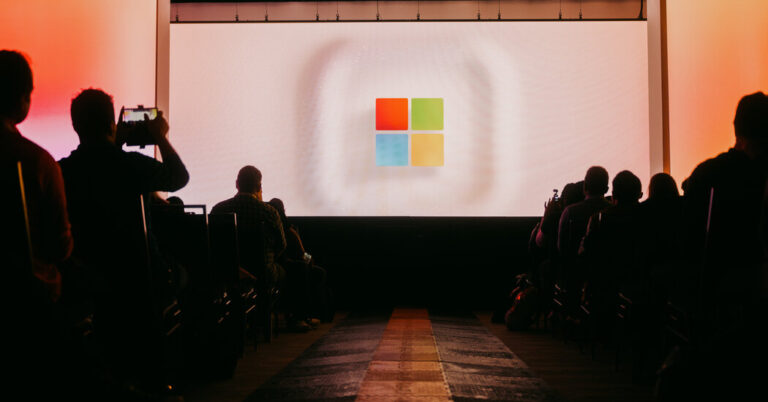Federal regulators have reached a deal to allow antitrust investigations into the dominant roles that Microsoft, OpenAI and Nvidia play in the artificial intelligence industry to proceed, the strongest sign yet of how regulatory scrutiny of this powerful technology is increasing.
The Justice Department and the FTC reached the agreement last week and are expected to close in the coming days, said two people familiar with the matter who were not authorized to discuss the private discussions publicly.
Under the deal, the Justice Department will take the lead in investigating whether Nvidia, the largest maker of AI chips, violated antitrust laws, the people said. The FTC will play a lead role in investigating the actions of OpenAI, which develops the chatbot ChatGPT, and Microsoft, which has invested $13 billion in OpenAI and done business with other AI companies, the people said.
The agreement marks increased Justice Department and FTC oversight of AI, a rapidly evolving technology that has the potential to transform jobs, information and people’s lives. The agencies have been at the forefront of the Biden administration’s efforts to curb the power of big tech companies. After a similar agreement was reached in 2019, the government investigated Google, Apple, Amazon and Meta and subsequently sued the companies for alleged antitrust violations.
For months, Nvidia, Microsoft and OpenAI largely avoided the brunt of the Biden administration’s regulatory scrutiny. That began to change in late 2022 when generative AI, capable of generating human-like text, photos, video and voice, suddenly emerged, sparking a frenzy in the industry.
Regulators have recently signaled their desire to get ahead of AI developments. In July, the FTC launched an investigation into whether OpenAI harmed consumers through its data collection. In January, the FTC also opened a broader investigation into strategic alliances between tech giants and AI startups, including Microsoft’s investment in OpenAI and Google and Amazon’s investment in Anthropic, another AI startup.
Still, the U.S. lags behind Europe in regulating artificial intelligence. European Union officials agreed last year to landmark rules to regulate the rapidly evolving technology that focus on the riskiest uses. In Washington, a group of senators released legislative recommendations on AI last month, calling for $32 billion a year in spending to give the U.S. a lead on the technology but refraining from calling for specific new regulations.
Talks between the FTC and the Justice Department about AI companies entered the final stages last week and involved senior levels of both agencies, according to an FTC official familiar with the discussions.
In a February interview, FTC Chairman Lina Khan said that when it comes to AI, the FTC is “trying to find potential problems at an early stage, not years later when they’ve become more ingrained and much harder to fix.”
Spokespeople for the FTC and Department of Justice declined to comment. Microsoft and OpenAI did not immediately respond to requests for comment. A representative for Nvidia declined to comment.
Nvidia, OpenAI and Microsoft are being touted as the biggest winners from the AI boom, raising questions about their dominance.
Silicon Valley chipmaker Nvidia is a leading provider of graphics processing units, or GPUs, a component well suited to machine learning and other AI tasks. Since AI took off, tech companies have competed to get their hands on Nvidia’s GPUs, and the company’s sales have doubled and tripled. Nvidia’s shares have soared more than 200% in the past year, and the company’s market capitalization topped $3 trillion for the first time on Wednesday, surpassing Apple.
Industry insiders are growing concerned about Nvidia’s dominance, two people familiar with the concerns said, including how Nvidia’s software locks customers into using its chips and how Nvidia distributes those chips to customers.
Microsoft, the world’s most valuable public technology company, has also become a major provider of artificial intelligence. The company owns 49% of OpenAI, which attracted public attention in 2022 with the release of ChatGPT. The chatbot’s ability to answer questions, generate images and build computer code captivated people, and the startup quickly became one of the most prominent companies in the technology industry.
Microsoft has incorporated OpenAI’s technology into its products: The AI now generates answers for users of its search engine, Bing, and also helps create presentations and documents in PowerPoint and Word. (The New York Times has sued OpenAI and Microsoft, alleging copyright infringement of news content linked to the AI system.)
Microsoft’s AI deal has come under scrutiny for giving one of the largest tech companies influence over emerging technologies, with some in the industry questioning whether the deal was structured in a way that allowed it to avoid direct regulatory scrutiny.
Microsoft’s reason for taking a minority stake in OpenAI is to avoid antitrust scrutiny, the Times reported. Microsoft also hired most of the staff of another AI startup, Inflexion AI, in March and signed a deal to license its technology. That deal was not a standard acquisition, which could make it more difficult for regulators to investigate.
“AI’s structure and trends should give us pause,” said Jonathan Cantor, the Justice Department’s top antitrust official, in opening remarks at a conference on AI at Stanford University last week.
“AI relies on vast amounts of data and computing power, which could give a huge advantage to companies that already have an advantage,” he said.

